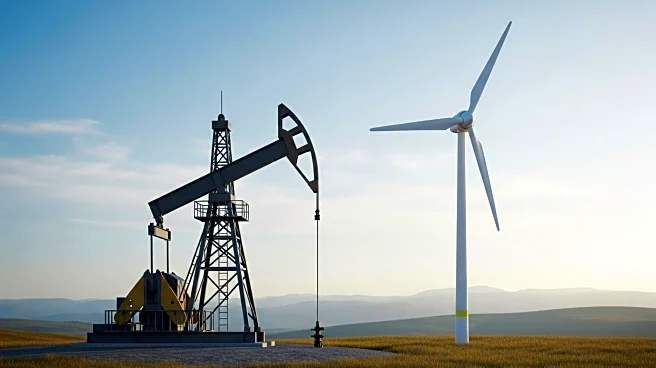What is the story about?
What's Happening?
BP has revised its forecasts for oil and gas demand upwards, suggesting that the global net zero target for 2050 may not be achievable. The company's annual outlook report indicates that oil consumption is expected to reach 83 million barrels per day by 2050, an increase from the previous estimate of 77 million barrels. Similarly, natural gas demand is projected to rise to 4,806 cubic meters annually by 2050. These adjustments reflect a slower transition to clean energy, influenced by geopolitical tensions and a focus on energy security.
Why It's Important?
BP's revised forecasts underscore the challenges in transitioning to a low-carbon economy. The increased demand for fossil fuels could hinder efforts to meet international climate goals, potentially exacerbating environmental issues. This development may prompt governments and industries to reassess their energy strategies, balancing the need for energy security with environmental commitments. The energy sector, particularly companies invested in renewable technologies, may face increased pressure to accelerate the shift towards sustainable energy sources.
Beyond the Headlines
The report highlights the potential emergence of 'electrostates,' where countries prioritize domestic low-carbon energy production over imported fossil fuels. This shift could lead to significant geopolitical and economic changes, as nations adjust their energy policies to reduce dependency on foreign energy sources. The long-term implications may include increased investment in renewable energy infrastructure and innovation, as well as potential shifts in global energy markets.















